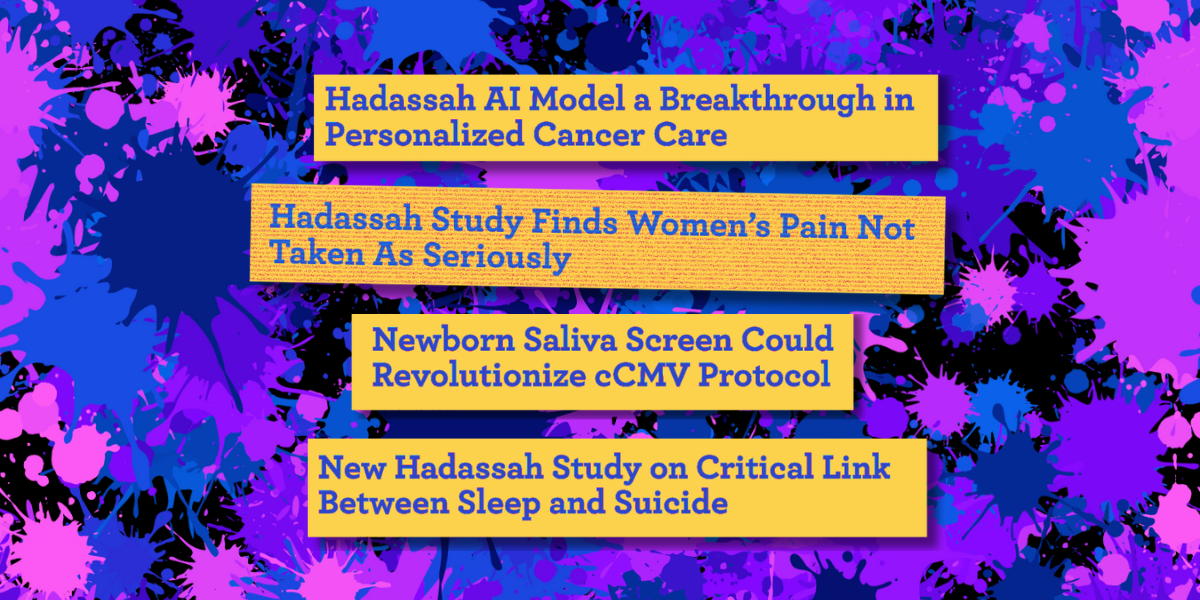Health + Medicine
Hadassah’s 2024 Medical Achievements
While the battlefield has driven many of the medical advances this past year, research in unrelated areas at the Hadassah Medical Organization is ongoing. Breakthroughs have been made in the study of cancer and virology, among other disciplines, despite the many professional and personal challenges HMO and its staff have faced since the start of the Israel-Hamas war.
RELATED: Hadassah Transforms Health Care During Wartime
“Hadassah continues as a leader in biomedical research,” said Dr. Eyal Mishani, director of HMO’s Research Fund and head of its Research and Development Division. “We believe that a hospital which invests in research, brings new treatments to its patients and exposes its physicians to new technologies will shape tomorrow’s medical environment.”
Among the developments at HMO this past year:
• Use of artificial intelligence in cancer care for more accurate and personalized treatment. HMO’s Cancer Research Institute has developed a model, known as MESiCA, which utilizes machine learning and natural language processing to detect unique patterns in the mutations that drive each patient’s cancer—enabling this to be done for the first time in routine clinical settings.
• Research on safely relieving the unbearable itching that many cancer patients experience as a result of the illness or its treatment. HMO’s Clinical Immunology and Allergy Unit has found that injecting a pharmaceutical called Dupixent (dupilumab)—commonly used to treat asthma and atopic dermatitis—blocks proteins that transmit the itching sensation to the brain and halts the irritation with just a few doses.
• Study of gender bias and its impact on treatment in Israeli and American emergency rooms. A recent HMO study found that women reporting pain are more likely to be perceived as overwrought and, therefore, their complaints are dismissed as exaggerated, while men, because they are viewed as stoic, are taken more seriously when expressing the same level of pain. This translates into women waiting an average of 30 minutes longer than men to see a physician and being less likely than men to receive pain-relief medication, irrespective of their age, level of pain, health care provider or gender of the physician.
• Research identifying a critical link between lack of sleep and suicidal thoughts in 12- to 18-year-olds. With suicide the second leading cause of death in children and adolescents in the United States and in Israel, this finding by HMO’s Herman Dana Division of Child and Adolescent Psychiatry elevates insufficient sleep as a significant risk factor in suicide.
• Discovery that congenital cytomegalovirus (cCMV), a relatively common virus that causes lifelong neurological deficits, can be reliably identified in saliva. This finding encourages routine screening in newborns, enabling intervention to reduce the impact of this virus.
Wendy Elliman is a British-born science writer who has lived in Israel for more than five decades.











 Facebook
Facebook Instagram
Instagram Twitter
Twitter
Leave a Reply